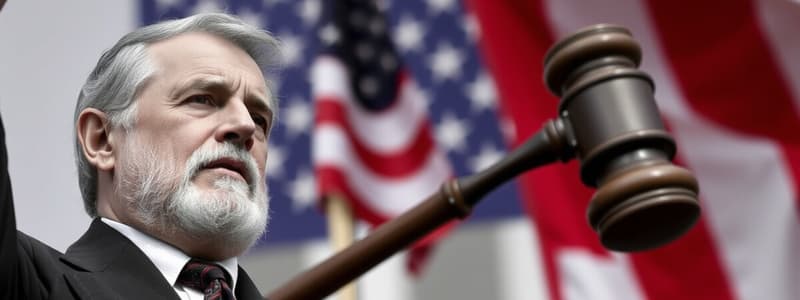Podcast
Questions and Answers
What was the outcome of George Reynolds' challenge to the federal anti-bigamy statute?
What was the outcome of George Reynolds' challenge to the federal anti-bigamy statute?
His conviction was affirmed by the Utah territorial supreme court.
Does the federal anti-bigamy statute violate the First Amendment's free exercise clause?
Does the federal anti-bigamy statute violate the First Amendment's free exercise clause?
- Only in certain states.
- It depends on the interpretation of the law.
- Yes, it violates the clause.
- No, it does not violate the clause. (correct)
What was the main conclusion reached by Chief Justice Morrison R. Waite in the case?
What was the main conclusion reached by Chief Justice Morrison R. Waite in the case?
The statute can punish criminal activity without regard to religious belief.
Flashcards are hidden until you start studying
Study Notes
Case Overview
- George Reynolds served as secretary to Brigham Young, a prominent Mormon leader.
- He legally challenged the federal anti-bigamy statute, which criminalized plural marriages.
- Convicted in a Utah territorial district court, Reynolds' conviction was upheld by the Utah territorial supreme court.
Legal Question
- The case posed the central question: Does the federal anti-bigamy statute violate the First Amendment’s free exercise clause as plural marriage is part of religious practice?
Court's Conclusion
- Chief Justice Morrison R. Waite delivered the unanimous decision for the court.
- The court concluded that the anti-bigamy statute can penalize criminal behavior irrespective of religious beliefs.
- The First Amendment provides protection for religious beliefs, but not for practices deemed criminal, such as bigamy.
- The ruling emphasized that practicing polygamy does not exempt individuals from legal accountability, drawing a parallel to religious human sacrifice.
Studying That Suits You
Use AI to generate personalized quizzes and flashcards to suit your learning preferences.



